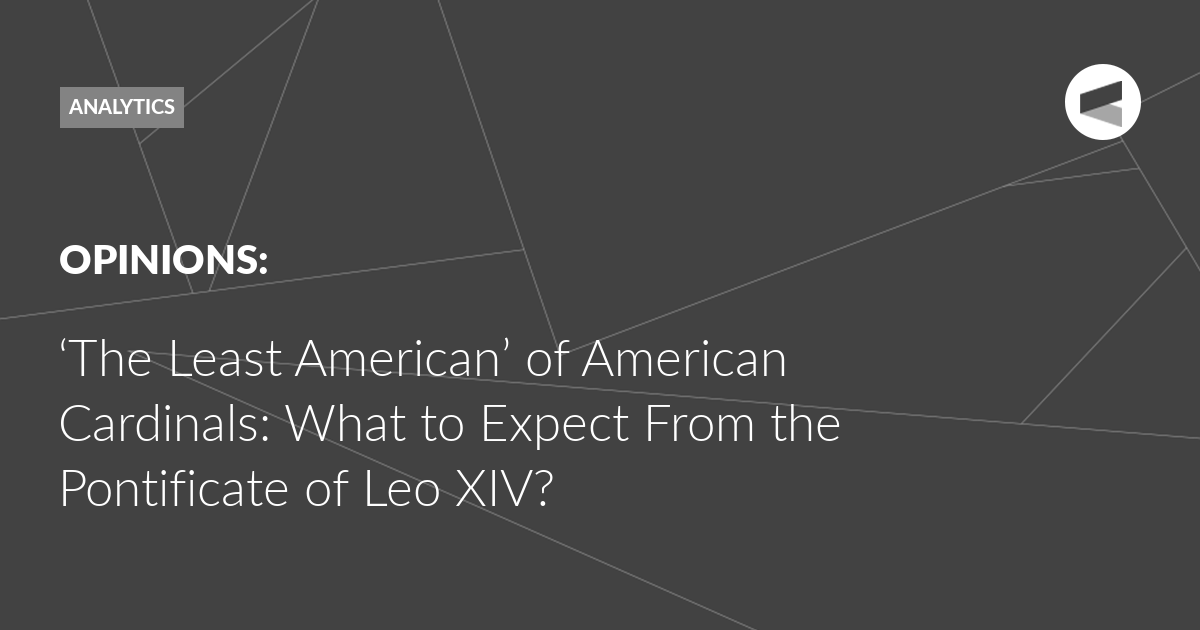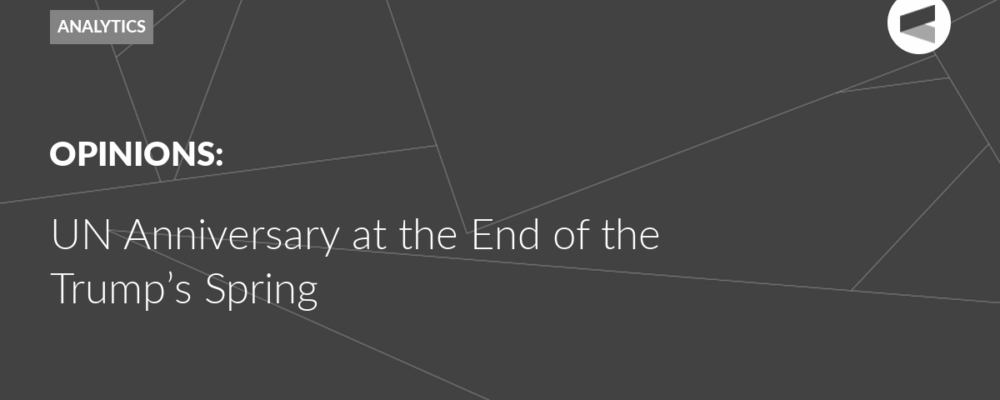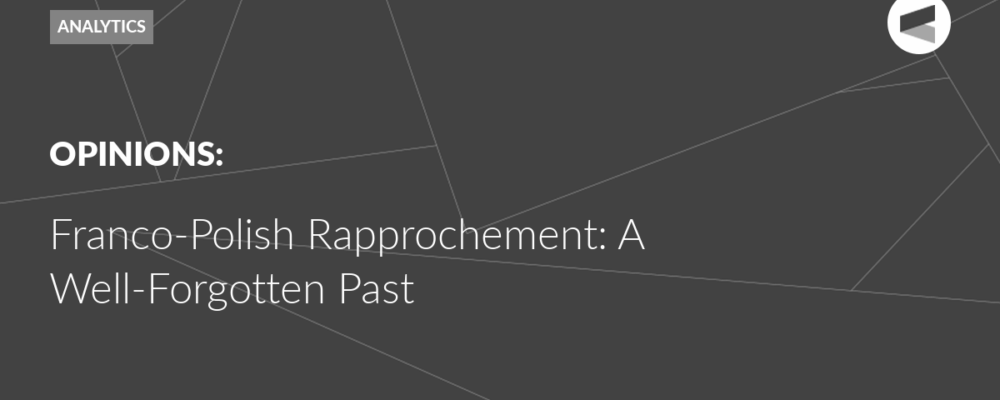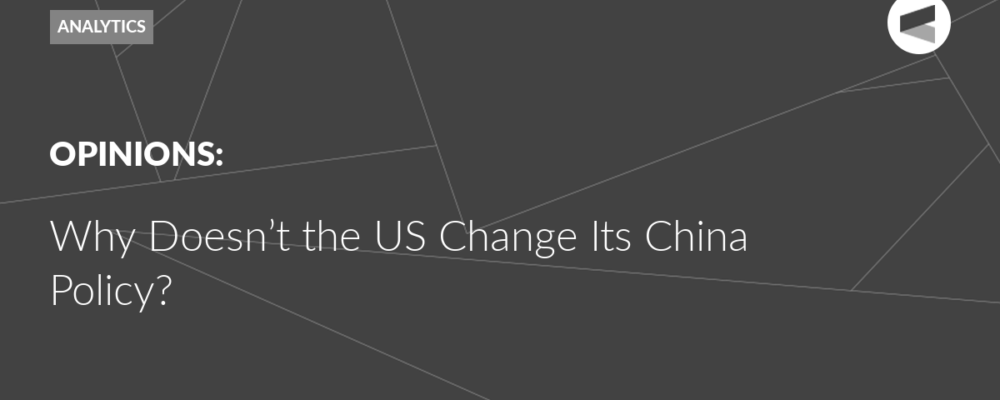As the first pontiff born in the United States, yet formed within Latin America’s pastoral and theological traditions, Leo XIV intends to pursue a path that combines global pragmatism with church orthodoxy, Ekaterina Shebalina writes.
The pontificate of Pope Francis – vibrant, unpredictable, and marked by contradiction – was characterised by numerous reforms that raised more questions than answers. In 2013, the cardinals were called upon to respond to a shocking event: the resignation of Benedict XVI. Having analysed the immediate causes, they came to the conclusion that one of the problems lay in the organisational and administrative structure of the Church as an institution. After some time, the blame was placed on the Pope’s associates. There was a sentiment that “four years of Bergoglio might be enough.” This meant that a pope from “the ends of the earth” was needed to shake up the institution and lay the foundations for reform. But only for about four years. In the end, the twelve years of Francis’s reign led to a clash between the Old World, Latin America, and North America. At the 2025 conclave, all the cardinals realised that it was time to turn the page, and Cardinal Robert Prevost was the man with the résumé best suited for the role. Leo XIV is not a pope of compromise, but a pope who has been called upon to bring harmony.
As the first pontiff born in the United States yet formed within Latin America’s pastoral and theological traditions, Leo XIV intends to pursue a course that combines global pragmatism with ecclesiastical orthodoxy. The pontiff will maintain the tone of his predecessor Francis’s progressive initiatives on synodality, environmental ethics (Laudato si’) and work with marginalised communities, but all reforms are likely to be implemented in accordance with strict adherence to Catholic doctrine, without any radical populist innovations. Prevost speaks openly about the need for urgent action to combat climate change. Recently, as a cardinal, he emphasised that the Church must move “from words to deeds”, warning against the “harmful” consequences of uncontrolled technological development and advocating for a reciprocal, non-tyrannical relationship with the environment. The theological worldview of the new pontiff, influenced by the social ethics of the Augustinian Order, is a vision of the Church as a moral and sacramental community, rather than a platform for political propaganda. The Roman primate maintains a no-nonsense position towards doctrinal innovations regarding issues such as gender identity, clerical celibacy and same-sex unions. It is no coincidence that days into his papacy, addressing diplomats, Leo XIV said: “The duty of those who bear responsibility in government is to work to create harmonious and peaceful civil societies. This can be done, first of all, by investing in the family, based on the solid union of a man and a woman, a small but true society, preceding any civil society.” The statement itself is neither groundbreaking nor sensational, being part of the Christian morality that the church preaches, but the emphasis on such a formulation of the question carries a clear message to the world community regarding the priorities of the new pontificate.
This position has been evident in previous statements by the head of the Roman Catholic Church. In his address to bishops in 2012, Cardinal Prevost expressed concern about the influence of Western media and popular culture, accusing it of encouraging “sympathy for beliefs and practices that are at odds with the gospel.” Among the mentioned topics were “homosexual lifestyles” and “alternative families comprised of same-sex partners and their adopted children.” During his Diocese of Chiclayo, in north-western Peru, Prevost spoke out forcefully against a government project to introduce gender education in public schools. “The promotion of gender ideology is confusing, because it attempts to create genders that don’t exist.” The election of the new Pope was not without the circulation of scandals around his person. “In recent months, and especially in the hours preceding the Conclave, Cardinal Robert Francis Prevost became the target of a campaign organised by ultra-conservative circles of the Church,” confirmed an investigation by the Spanish El Pais newspaper. The accusation is regarding the concealment of evident violence committed by a Peruvian priest subordinate to Prevost. At the same time, such attacks were quickly neutralised by the positive information background created by the Roman primate after coming to power. Pope Leo is not a fan of selfies and does not seek to gain popularity with popular media techniques. However, in one of his recent speeches, the pontiff warned believers against fake news with the words “let’s cultivate critical thinking.” Pope Leo XIV’s diplomatic contacts with the Ukrainian leadership, American officials and Chinese Catholics that have already taken place indicate that the Vatican’s renewed diplomacy will be assertive and conciliatory; less declarative and more effective. In matters of building the Holy See’s foreign policy, the Roman pontiff will likely draw inspiration from the Ostpolitik of the Cold War era, adapting it to today’s multipolar tensions.
The key issues on the global agenda for Leo XIV are the Holy See’s effective participation in conflict resolution, particularly in Ukraine, the Middle East and sub-Saharan Africa. It is no coincidence that the pontiff has already proposed the Vatican as a negotiating platform for representatives of Moscow and Kiev.
An equally important topic for the Roman pontiff is mediation between authoritarian regimes and underground Catholic communities, especially in China and some parts of the Islamic world. In addition, the new pontiff’s agenda includes reaffirming the Vatican’s status as a moral voice in international law and humanitarian policy, rather than a partisan participant in Western political conflicts. Thus, the Holy See under Leo XIV will likely reaffirm its role as a non-aligned, but at the same time principled player, emphasising the importance of international solidarity, religious freedom, and diplomatic multilateralism. A separate topic that has attracted interest in the media is the Pontiff’s American citizenship and his relationship with Donald Trump. It is a big mistake to assume that the new pope is a representative of the US identity. According to Vaticanists, Prevost was “the least American of all American” cardinals – twenty years in Peru have had a significant impact on the worldview of the pontiff. This, among other things, has affected his relations with the US political parties. The interaction of the new Pope with the White House team seems strained. The Pontiff has already demonstrated that he does not consider himself a representative of North America – at a meeting with US Vice President J.D. Vance, Leo was very reserved, maintaining a clear formal distance. It is obvious (as was evident in his previous statements) that the pontiff does not support the current Republican party line in methods of solving the migration crisis, as well as its overall consumerist attitude towards religion, which has been actively used to attract voters in the election race. At the same time, on the topics of reproductive health and abortion, Prevost is already demonstrating approaches which resonate with the ideas of MAGA followers.
In relation to Russia, the pontiff currently follows a policy of neutrality, which, however, is manifested in active participation – the desire for the Holy See to play an important role in resolving the Ukraine crisis. According to Ivan Soltanovsky, the Russian Ambassador to the Vatican, “the new Pope is known as a supporter of dialogue and a fighter for peace, we hope that this approach will be embodied in his pontificate.” However, the struggle for peace will not be expressed in alternate “curtsies” to the Russian and Ukrainian public, which, as was the case during the pontificate of Francis, the Secretary of State of the Holy See Pietro Parolin then smoothed over with comments about the Vatican maintaining diplomatic neutrality. Leo XIV is interested in specific actions: facilitating the exchange of prisoners of war and providing a platform for dialogue. It is quite logical that the Roman primate will not abandon the idea of his predecessor to visit Moscow and Kiev in turn; not on terms which suit the purpose of his own popularisation, but under favourable circumstances that allow such a manoeuvre.
In a fragmented world in search of stable moral guidelines, Pope Leo XIV could show himself not only as a religious leader, but also as a global ethical interlocutor – a role that the modern papacy is capable of fulfilling quite effectively.
The Valdai Discussion Club was established in 2004. It is named after Lake Valdai, which is located close to Veliky Novgorod, where the Club’s first meeting took place.
Please visit the firm link to site






